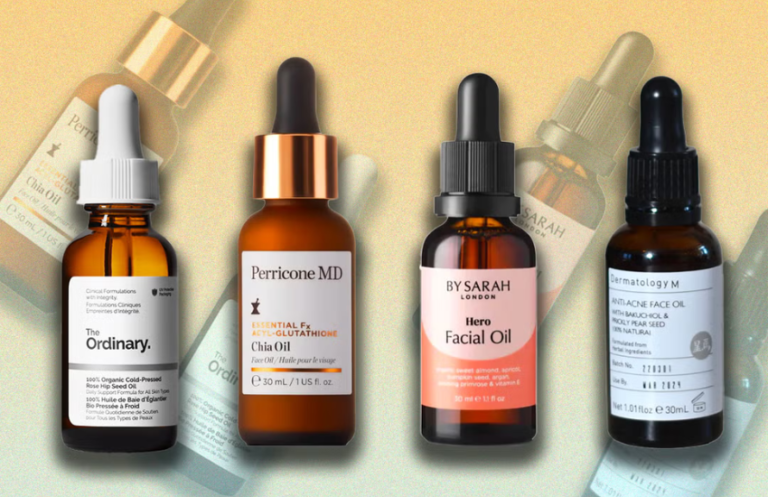In recent years, face oils have become an essential part of many skincare routines, and for a good reason. These powerful, natural oils can hydrate, nourish, and even balance the skin, making them suitable for all skin types—from dry and sensitive to oily and acne-prone. Whether you’re new to using face oils or looking to refine your skincare routine, understanding how to choose the right oil and apply it effectively can make all the difference.

In this comprehensive guide, we’ll explore everything you need to know about face oils—what they are, their benefits, how to use them properly, and which oils are best suited for different skin types. By the end of this article, you’ll be equipped to incorporate face oils into your skincare regimen for a radiant, glowing complexion.
What Are Face Oils?
Face oils are natural or synthetic oils formulated specifically for the face. These oils work by nourishing the skin, creating a barrier to lock in moisture, and providing essential vitamins and antioxidants. Contrary to common belief, face oils are not just for dry skin—they can benefit all skin types, including oily and acne-prone skin.
Face oils are rich in essential fatty acids, vitamins like A, E, and C, and other active ingredients that can soothe, hydrate, and restore balance to your skin. Whether you want to address specific skin concerns or simply add extra hydration, face oils can be a powerful addition to your skincare routine.
Benefits of Using Face Oils
Incorporating face oils into your daily skincare routine can provide a range of benefits, including hydration, protection, and anti-aging properties. Below are some of the key advantages of using face oils:
1. Deep Hydration
One of the primary benefits of face oils is their ability to deeply hydrate the skin. Unlike water-based moisturizers that evaporate quickly, oils penetrate the skin and create a protective barrier that locks in moisture, keeping your skin hydrated for longer periods.
2. Rich in Antioxidants
Many face oils are packed with antioxidants, which help protect the skin from free radical damage caused by environmental factors such as pollution and UV exposure. Antioxidants also help reduce inflammation and promote the skin’s natural healing processes.
3. Anti-Aging Benefits
Some face oils, particularly those rich in vitamins A, C, and E, have anti-aging properties. They can help reduce the appearance of fine lines, wrinkles, and age spots while improving skin elasticity and firmness.
4. Balancing Oil Production
Contrary to the misconception that applying oil to oily skin can cause breakouts, many face oils are non-comedogenic (they don’t clog pores) and can actually help balance oil production. By moisturizing the skin and providing essential nutrients, oils like jojoba can signal the skin to produce less sebum, reducing the likelihood of acne.
5. Soothing and Calming
Face oils with anti-inflammatory properties, such as chamomile or rosehip oil, can help soothe irritated or sensitive skin. They reduce redness, calm inflammation, and promote an even skin tone.
6. Improved Skin Texture
Regular use of face oils can enhance the texture of your skin, making it smoother, softer, and more radiant. Over time, these oils help repair damaged skin and restore its natural glow.
How to Choose the Best Face Oil for Your Skin Type
When it comes to selecting the best face oils, it’s important to choose an oil that suits your specific skin type and concerns. Here’s


